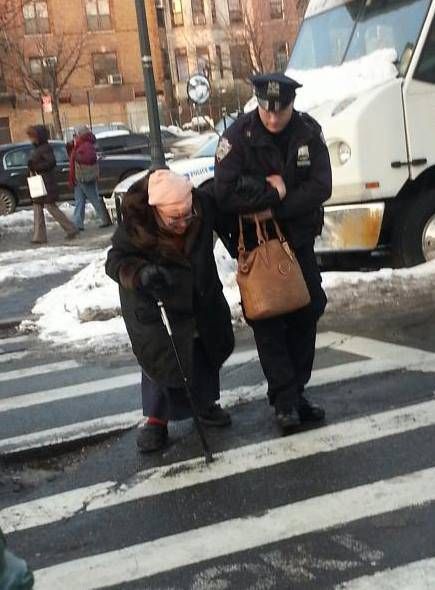The light turned red for the third time. I was two cars back, fingers tapping on the steering wheel, running late to pick up my niece from daycare. Frustration simmered under my skin—until I saw why traffic had stopped.
A police officer stood in the crosswalk, one hand raised to halt cars in both directions. At his side, moving carefully with a cane, was an elderly woman wrapped in an oversized brown coat. She walked slowly, deliberately, like every step was a negotiation with her body. The officer didn’t rush her. Just smiled and stayed by her side until she reached the curb.
That alone might’ve made me cry.
But then she turned.And looked directly at my car.
That face. That unmistakable face.
Her name was Maribel.
I hadn’t seen her in twelve years. Not since the courthouse. Not since she turned around in front of the judge and told me, “Tell your brother I forgive him.”
Maribel was the woman my brother Mateo had hit with his car.
He was nineteen. It was raining. He was driving home from a party and didn’t see her crossing the street until it was too late. She survived—barely. Two broken legs. A punctured lung. Pain that lingered for years.
Mateo spiraled. Drinking. Arrests. Regret that rotted him from the inside. He wrote her a letter after the accident, but we never knew if she read it.In court, Maribel showed up with a walker—and compassion. She asked the judge to spare Mateo. Said punishment wouldn’t bring healing. Forgiveness might.
And then she disappeared.
Until now.
I pulled into the nearest gas station, heart pounding, and watched her shuffle down the sidewalk. I didn’t think. I just rolled down the window.
“Maribel?”
She stopped. Turned. Her eyes were soft and calm.
“Yes?”
I stepped out. “It’s me. Sol. Mateo’s sister.”
She blinked, then smiled. “You were the one holding his jacket.”
I nodded, the memory hitting hard. “He’s… trying. Sober now. Works construction in Tucson. He still thinks of you.”
She touched her tote bag, then said something I’ll never forget:
“I think about him too. I never had children. But you two… you stayed with me.”
We walked together to her destination—a pharmacy a few blocks away. She told me about her sore knees. Her cat who naps on her clean laundry. Her late husband. She was managing, she said. And I believed her.
Then she paused.
“Mateo never knew this, but… I read that letter every night for weeks. It reminded me I mattered. That someone saw me.”
Right there on the sidewalk, I broke.
Her grace. Her strength. The miracle of her forgiveness—it floored me.
“Tell him I’m still proud of him,” she said, patting my hand.
“I will,” I whispered.
Yes, I was late picking up my niece. My sister gave me that look—the raised eyebrow, the “What happened this time?” expression. I told her the truth.
Maybe it sounded crazy.
But in the best way.
That night, I called Mateo.
“She remembered me?” he asked.
When I told him what she said, he cried. Not the way he used to—out of guilt and pain. This time, it was from something gentler. Something healing.
That day, I learned something I’ll never forget:
Forgiveness isn’t just a gift. It’s a bridge.
Some people carry our sorrow not to punish us—but to help us survive it.
If this story touched your heart, share it. Because somewhere out there, someone needs to know that grace still exists. And that second chances do, too.
